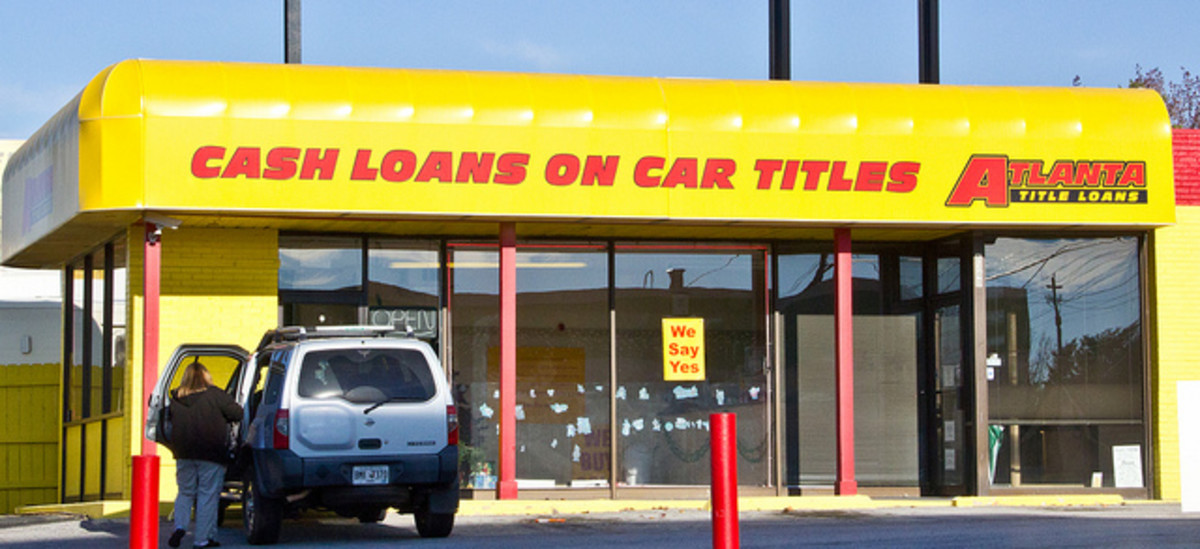How to Consolidate Your Student Loans and Pay Them Off Quickly
Consolidating Student Loans and Paying Them Off
If you're attending or recently graduated college, chances are you have student loan debt. In fact, it was recently reported that the average student graduates with about $22,000 in debt and that doesn't even include the loans accumulated by the students who didn't graduate. Lately I've been reading stories of young adults with astronomically high levels of loan debt, some with over $100,000 to pay back across many different loans, both Federal and private. I'll be upfront and say that I don't think it's a good idea to finance an education to this extent. In my opinion, it would be preferrable to attend a community college and/or a State school to buffer the costs. But if this is the situation you find yourself in, this article will help make sense of student loan consolidation and will provide tips for how to pay off your student loans more quickly. Student loan consolidation can make repaying your education debt easier by lowering the payments but there are drawbacks to be aware of. Whether you consolidate or not, getting out from under this debt as quickly as possible is advised.

Federal Student Loans vs. Private Loans
Federal Student Loans are those that are backed by the U.S. Government. They feature low interest rates, longer repayment terms, multiple repayment options, and lower credit requirements. The amount a student can borrow from the Federal Student Loan programs are limited to $5500 per year at most. Because of the high cost of education, many students are now also turning to private loans to meet the gap between grants, work, Federal Student Loans and the full cost of college. Although private loans can be generous and can be used for a computer and books in addition to tuition, room and board, the repayment options aren't as flexible, the interest rates are usually higher, and many have variable interest rates. This means that the interest rate could increase over time. Because of the drawbacks associated with private student loans, avoiding them is recommended.
- College ROI: Is College Worth the Investment?
Given the high cost of attending college today, it's important to think about the return on investment of your degree. Ultimately, it may make more sense not to attend college. This article weights the options.
Repayment Options for Federal Student Loans
Before discussing repayment options for Federal Student Loans, it's important to note that you should attempt to modify your repayment terms before you go into default. Once a loan is in default, many of the repayment options won't be available to you. The various repayment plans are as follows:
- Standard repayment plan: This is the first repayment plan your lender will offer you. The loans are repaid in terms of up to ten years and the monthly payments are the highest of all the repayment options. However, the total paid over the life of the loan is lower because of the lower repayment term.
- Graduated repayment plan: With this repayment plan, payments start low and increase gradually, approximately every two years. This helps the new graduate in the early years of their career when they're likely to be paid less.
- Extended repayment plan: If your loan balance is at least $30,000 you'll be eligible to stretch out the repayment term to up to 25 years, significantly lowering your monthly payment but also significantly increasing your overall cost.
- Income based repayment plan: This is an ideal option if you're income is low or variable month-to-month. Your monthly payments will rise and fall along with your income so that the payment will never be an undue burden. The repayment amount is generally recalculated each year based on your income, household size and loan amount.
Consolidation is another option for Federal Student Loans. Given that you can only consolidate once, it's best to learn all you can about this option and do it correctly from the beginning. First, keep in mind that you should avoid consolidating Federal Student loans into private loans. When you do this, you lose the flexibility and repayment options available for Federal loans. The biggest benefits of loan consolidation are: You'll have only one payment each month, you could end up with a lower interest rate overall, you could have lower monthly payments due to a longer loan term or lower interest rates.
Finally, with Federal Student loans, deferrment and forebearance are additional options. If you find yourself in a situation where you know you won't be able to make your payments, contact the loan servicer and request one of these options. In both instances, you get to stop making payments. However, in deferrment, the government will pay the accruing interest on your loan while in forebearance, the interest will continue to accrue (and your loan balance will increase) during the forebearance period. Obviously deferrment is the preferred option if it's available to you.
Repayment Options for Private Student Loans
Unfortunately, if you have private student loans, your options are limited. You no longer have the ability to rely on flexible repayment plans, deferrment, or forebearance. In addition, most private student loans have variable interest rates meaning that the rate could increase if interest rates begin to rise, with a resulting increase in your payment.
One option is consolidation with a private lender. Be sure to shop around aggressively for the best rate and terms. You may be able to lower your interest rate if your credit score has improved since you originally qualified for the loan. Go to www.finaid.org or www.simpletuition.com to compare different loan consolidation options for private student loans.
Repayment Strategies
You'll want to pay off your student loans as quickly as possible but you need a strategy to do so. Because of the possiblity of interest rate increases and generally higher rates overall, it makes sense to pay off the private student loans first, if you have them. If you don't have private loans, simply start with highest interest rate loans first. If you've consolidated your Federal student loans into one payment, then you've simplified things for yourself and you'll just need to pay the minimum plus any additional you can afford.
When paying off multiple student loans, do what's known as the snowball aproach of debt reduction. With this approach, you start paying agressively on the least desireable loan (Private Loans first then highest interest rate loans) while paying the minimum on the other loans. Once the first loan is paid off, you take a month or two off and enjoy the extra money you have. Then you channel that money to paying off the second loan. Now you'll be paying off that second loan very agressively and will be able to get it out of the way very quickly. After that, take another break but then channel the money you were paying on the first and second loans into the third loan. With this approach, your monthly payment won't change but you'll be paying off the loans faster and faster as time goes on.
The key to the snowball strategy is to develop a budget and keep your expenses low. If you need to, live with your parents or roommates to cut housing costs. Even though it's not ideal, you'll be happy you did it when your loans are paid off. Try to go without a car by utilizing public transportation or buy an older used car. Take on a second job to earn additional funds to pay down the debt more quickly.
Probably the best advice though is not to get too far into debt in the first place. If you find yourself in a situation where you need to borrow more than $20,000 across all four years of college, you should probably re-evaluate your situation. Can you attend a Community College for two years? Can you work during the school year? Attend a State School? There are definitely a lot of options out there for students who want an education but who don't want to pay for one for 20 years.








